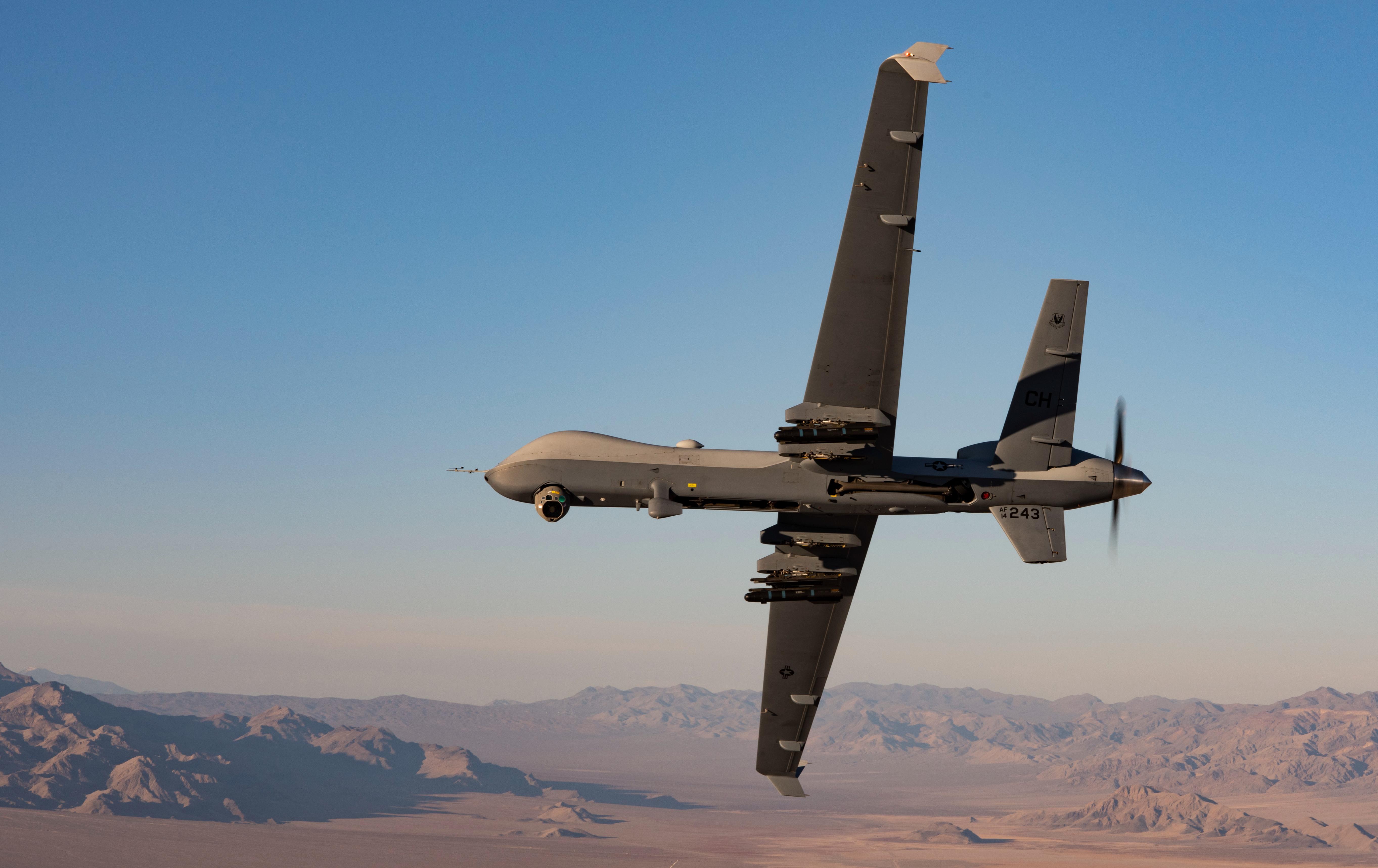In a significant advancement for the Air Force Special Operations Command (AFSOC), a single crew successfully controlled three MQ-9 drones, marking a key development in preparations for potential near-peer conflicts. This operation saw a pilot and sensor operator manage three Reapers simultaneously for approximately 30 minutes. This demonstration aligns with AFSOC’s strategic shift from traditional intelligence, surveillance, and reconnaissance (ISR) roles towards more complex operations in potentially hostile environments. The MQ-9 Reaper’s evolving role reflects the U.S. Air Force’s anticipation of challenges in future conflicts, particularly against technologically advanced adversaries.
AFSOC’s initiative, termed the Adaptive Airborne Enterprise (A2E), envisions MQ-9s as mobile control centers for a network of smaller drones. This network aims to establish an expansive sensing grid and communication pathways for special operations forces in deep battlefields. The A2E program is outlined in five phases, progressing from modernizing ground control stations to enabling single crews to control multiple drones of various types, including the MQ-9 Reaper. Recent demonstrations included the use of a new common control interface, the AFSOC RPA Control Suite (ARCS), which facilitated the control of multiple platforms. Additionally, the ability to air-launch and manage small unmanned aerial systems from an MQ-9 was demonstrated, showcasing the Reaper’s potential as a versatile asset in complex military operations.
Best Coverage:





